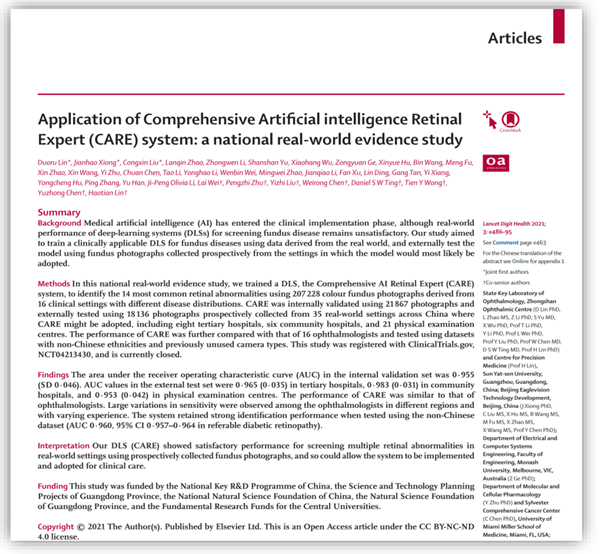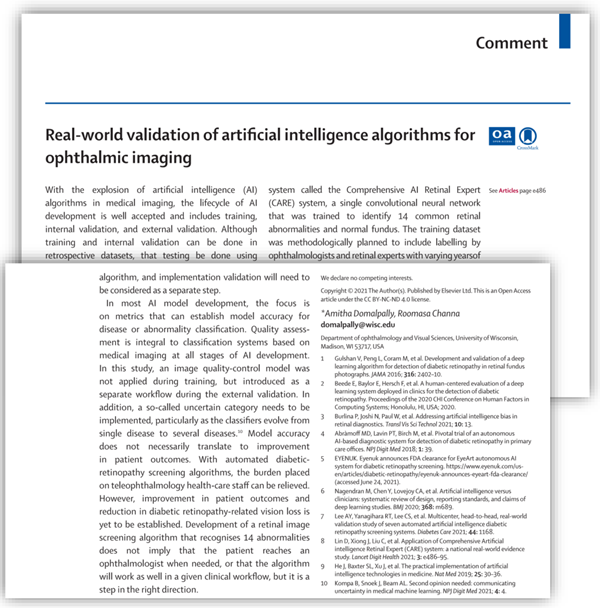World’s First Real-World Research on Ophthalmic AI Detecting Multiple Ocular Diseases Completed in China
Resource: Department of Artificial Intelligence
Written by: Duoru Lin, Department of Artificial Intelligence
Proofread by: Jiawei Wang
Edited by: Xianjing Wei
Reviewed by: Xiaoling Liang
As science and technology benefit China’s health, the booming of artificial intelligence (AI) in medicine is hopeful to handle the huge problem of medical resource shortage and help achieving state-level strategy of comprehensive health development of the “Healthy China 2030” blueprint. With the support of programs such as the National Key R&D Program of China, a team led by Professor Haotian Lin from the Zhongshan Ophthalmic Center (ZOC), Sun Yat-sen University has completed the world's first multi-center real world research on the evaluation and supervision strategies of AI medical devices detecting multiple ocular diseases before clinical application, accompanying with 18 domestic and foreign medical establishments, scientific research institutions and enterprises, including Airdoc, a leading enterprise in the field of AI in medicine, and Guangdong Medical Devices Quality Surveillance and Test Institute. On 27th July, 2021, the team has published the article “Application of Comprehensive Artificial Intelligence Retinal Expert (CARE) system: a national real-world evidence study” in The Lancet Digital Health (impact factor: 24.519), the world’s leading medical journal. The team has also possessed a series of technical patents and obtained the first ophthalmic AI software class III medical device product registration certificate issued by the National Medical Products Administration.

Fig 1. The Lancet Digital Health online publication

Fig 2. Comments from Amitha Domalpally, the director of Department of ophthalmology and visual science, University of Wisconsin Madison
